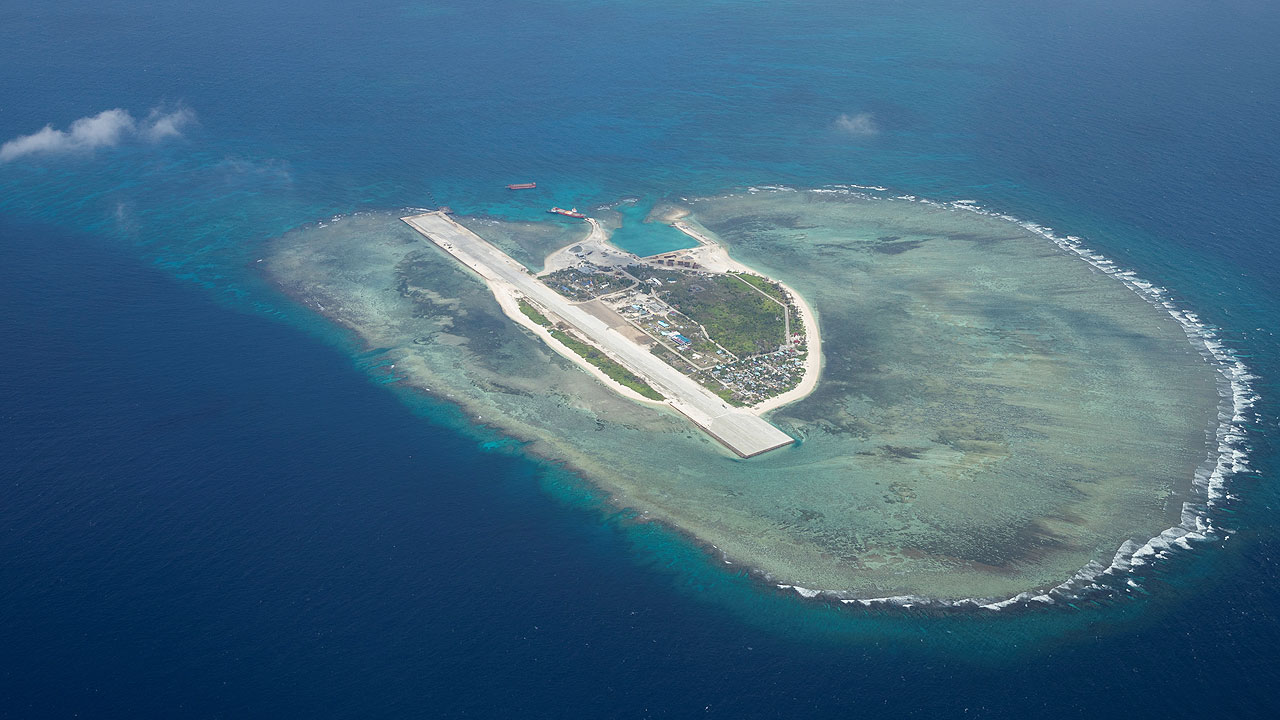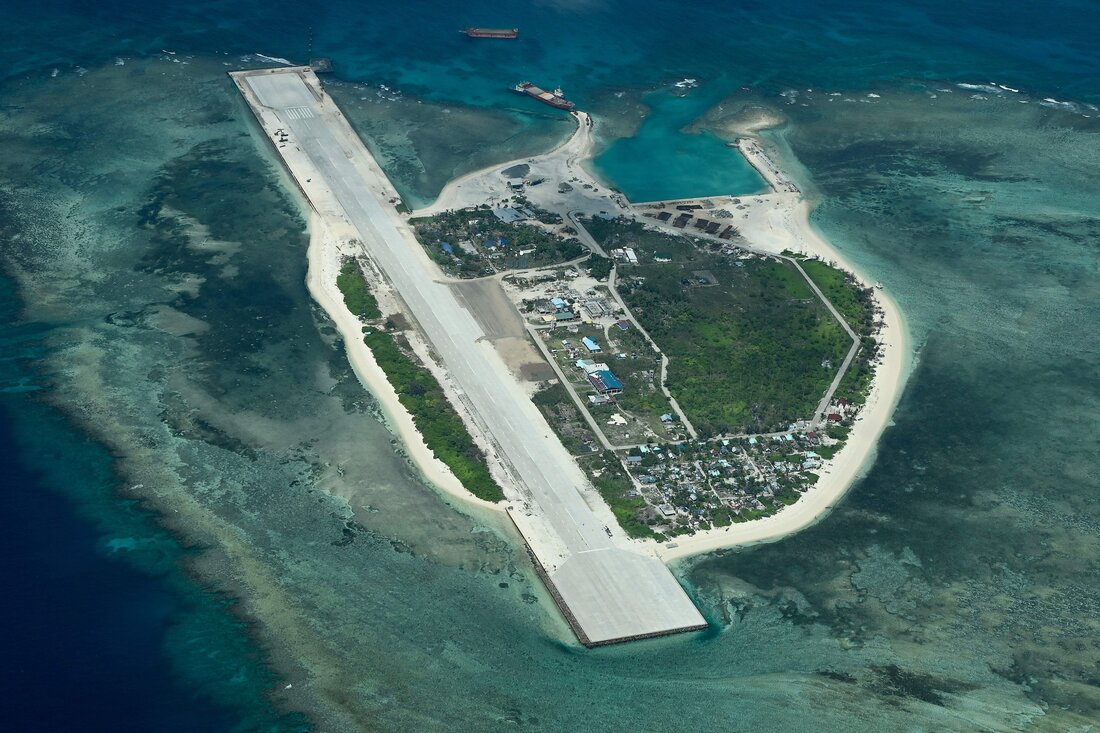Thitu Island, or Pag-asa Island as it’s known in the Philippines, is a picturesque but contentious location in the South China Sea. Known for its serene sandy beaches and clear blue waters, Thitu appears to be a tranquil paradise devoid of modern intrusions like heavy traffic and pollution.
However, beneath its peaceful facade lies a hotspot of geopolitical conflict, as the island is part of the Spratly archipelago, one of the most disputed maritime regions in the world.
Occupied by the Philippines since 1974, Thitu is home to 387 civilians who live amidst escalating tensions with neighboring China, which also claims sovereignty over the island and much of the surrounding South China Sea. This territorial dispute has made Thitu a frontline in the ongoing struggle between the Philippines and China, with the latter’s aggressive stance intensifying in recent years.
The island’s name itself is a point of contention. While the Philippines refers to it as Pag-asa, meaning “hope” in Tagalog, other claimants such as China, Vietnam, and Taiwan use different names. International courts generally use the name Thitu, reflecting its contested status. This nomenclature dispute underscores the broader diplomatic and territorial frictions in the region.

Local residents like Larry Hugo, head of the fisherfolk association on Thitu, have long lived under the shadow of Chinese surveillance and aggression. Hugo has experienced increased Chinese maritime and aerial presence, including vessels, aircraft, and drones. Despite these challenges, Hugo and the island’s residents remain resolute in their determination to stay and defend their presence.
Recent developments have exacerbated the tensions. Chinese vessels have imposed blockades to obstruct Philippine resupply missions to troops stationed at nearby Second Thomas Shoal, leading to confrontations that have involved ramming and the use of water cannons.
In a recent incident, Filipino coastguard ships were damaged in a collision with Chinese vessels, highlighting the growing risk of conflict in these disputed waters.
China’s introduction of new regulations allowing its coastguard to detain foreigners for alleged trespassing has heightened security concerns. Thitu’s fishers now operate in larger groups for safety, reflecting the pervasive fear of Chinese apprehensions. Larry Hugo’s experiences and his resolve to stay underscore the precariousness of life in Thitu amid these geopolitical tensions.
Despite the challenges, life in Thitu has seen notable improvements over the years. The island now features a range of facilities including a health clinic, school, port, and even a basketball court. The population has grown, partly due to government incentives like rice subsidies, which aim to support families living in this strategically significant location.
The island’s young residents, including Larry Hugo’s daughter Abegail, enjoy a relatively joyful existence despite the constraints of island life. Abegail finds contentment in the island’s beauty and community, although she misses some comforts and foods from Palawan. Her experiences reflect the resilience and adaptability of those living in such isolated and contested environments.
Living conditions on Thitu are influenced by both natural and man-made factors. Weather conditions can disrupt fishing and supply deliveries, making life challenging. Yet, government support has improved resources, including health budgets, to better meet the needs of the island’s residents. However, the lack of facilities, like a birthing center, remains a significant challenge.
The island’s residents embody the Philippines’ claim to Thitu through their presence. Filipino officials emphasize that having civilians on the island strengthens their sovereignty claim, contrasting with China’s extensive military construction on nearby artificial islands like Subi Reef.
The ongoing presence of Filipino civilians, despite the threats and difficulties, is a testament to their commitment to maintaining the country’s territorial claims in the South China Sea.

